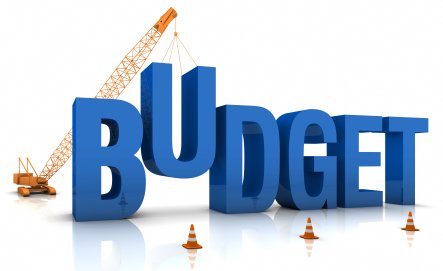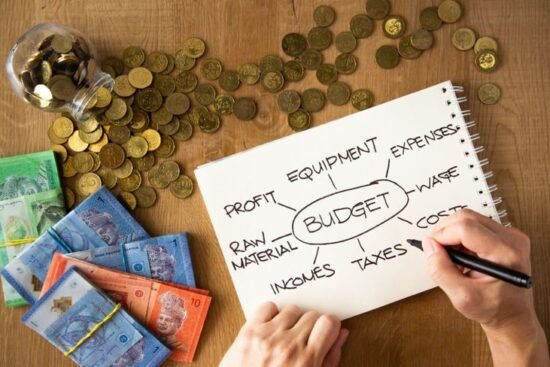The message got cut off. Do you need further assistance with something specific? First-Time Homebuyers: Your Comprehensive Guide to Buying Your First Home
Buying your first home is an exciting milestone but can also be overwhelming. From understanding the home buying process to navigating financing options, this guide will walk you through everything you need to know as a first-time homebuyer.
Frequently Asked Questions
The initial steps for first-time homebuyers typically include:
- Assess Your Financial Situation: Review your finances to determine how much you can afford. This includes evaluating your savings for a down payment, understanding your credit score, and calculating your budget for monthly mortgage payments.
- Get Pre-Approved for a Mortgage: Seek pre-approval from a lender to determine your borrowing capacity. This will help you understand how much you can afford and strengthen your position with sellers.
- Find a Real Estate Agent: Choose an experienced real estate agent who can guide you through the process, help you find homes that meet your criteria, and negotiate on your behalf.
- Start House Hunting: Begin searching for homes in your desired area. Consider factors such as location, size, and amenities.
- Make an Offer: Once you find a suitable property, make an offer through your agent. Your offer may be subject to negotiations with the seller.
- Schedule a Home Inspection: Hire a professional inspector to assess the home’s condition and identify potential issues.
- Finalize Your Mortgage: Complete the application process, provide the necessary documentation, and secure your loan.
- Close the Deal: Review and sign the closing documents, pay closing costs, and complete the purchase of your new home.
- Move-In: After closing, you’ll receive the keys to your new home and can begin moving in.
A down payment is an upfront payment made toward purchasing a home, usually expressed as a percentage of the home’s purchase price. The amount required can vary:
- Conventional Loans: Typically require a down payment of 5% to 20% of the home’s purchase price.
- FHA Loans: Require a minimum down payment of 3.5%.
- VA Loans: Often offer no down payment options for eligible veterans and service members.
- USDA Loans: May also offer no down payment options for qualifying rural properties.
To improve your credit score:
- Pay Bills on Time: Timely payment of bills is crucial for a good credit score.
- Reduce Debt: Lower your credit card balances and other debts to improve your credit utilization ratio.
- Check Your Credit Report: Review your credit report for errors and dispute any inaccuracies.
- Avoid New Credit Accounts: Do not open new credit accounts before applying for a mortgage, as this can affect your credit score.
During a home inspection, pay attention to:
- Structural Integrity: Check for foundation, walls, and roof issues.
- Plumbing and Electrical Systems: Ensure no leaks, faulty wiring, or outdated systems exist.
- HVAC Systems: Verify that heating and cooling systems are functioning correctly.
- Pest Damage: Look for signs of pest infestations or damage.
- Overall Condition: Assess the general condition of the property, including windows, doors, and appliances.
Closing costs are fees and expenses paid at the closing of a real estate transaction, including:
- Origination Fees: Charged by the lender for processing the loan.
- Appraisal Fees: For assessing the property’s value.
- Title Insurance: Protects against issues with the property’s title.
- Inspection Fees: For the home inspection.
- Property Taxes and Insurance: Prepaid amounts for taxes and insurance.
Closing costs typically range from 2% to 5% of the home’s purchase price. Budgeting for these costs, in addition to your down payment, is essential.
Consider the following factors when choosing a mortgage:
- Interest Rates: Compare rates between different lenders to find the most favorable terms.
- Loan Terms: Choose between short-term and long-term loans based on your financial goals and ability to make payments.
- Types of Mortgages: Decide between fixed-rate, adjustable-rate, FHA, VA, or USDA loans based on your eligibility and needs.
- Monthly Payments: Ensure that the monthly mortgage payments fit within your budget.
Key Terms
The initial payment made towards purchasing a home is typically a percentage of the home’s purchase price.
A preliminary assessment by a lender indicating the maximum loan amount you can borrow based on your financial situation and credit history.
A professional evaluation of a home’s condition, identifying potential issues or needed repairs.
Fees and expenses incurred during the finalization of a home purchase, including origination fees, appraisal fees, title insurance, and more.
A numerical representation of your creditworthiness based on your credit history and financial behavior.
The interest rates charged on a mortgage loan can be fixed or adjustable.
A mortgage insured by the Federal Housing Administration is designed for borrowers with lower credit scores and smaller down payments.
A mortgage backed by the Department of Veterans Affairs offers favorable terms such as no down payment to eligible veterans and service members.
A mortgage backed by the U.S. Department of Agriculture for rural and suburban homebuyers with no down payment required.
Related Post
-
MFS
- 19 Sep 2024
Saving for Education: How to Plan and Budget for College or Other Educational Expenses
Schooling is perhaps one of an individual or family's main speculations. In any case, the increasing expense of educational costs,…
-
David Harper
- 06 Sep 2024
Travelling on a Budget: How to Explore the World Without Breaking the Bank
Going on a Tight spending plan: How to Investigate the World Without Burning through every last cent Venturing to the…
-
David Harper
- 06 Sep 2024
Budgeting Basics: Creating a Budget That Actually Works
Arranging is fundamental to the financial organization, yet numerous people need help making a spending arrangement they can stick to.…
-
David Harper
- 29 Aug 2024
Basics of Budgeting: How to Create a Budget That Works
Making a spending arrangement is fundamental to achieving money-related trustworthiness and ensuring that your compensation aligns with your monetary goals.…
-
David Harper
- 24 Jul 2024
Budgeting for Big Life Changes (e.g., Marriage, Parenthood, Retirement): Financial planning tips for major life transitions
Budgeting is one of the crucial and significant steps humans take to maintain and ensure stability, balance, and readiness for…
-
MFS
- 24 Jul 2024
Navigating Budgeting During Economic Uncertainty: Essential Tips for Financial Stability
Assess Your Financial Situation The first step in adjusting your budget during economic uncertainty is thoroughly assessing your financial situation.…






